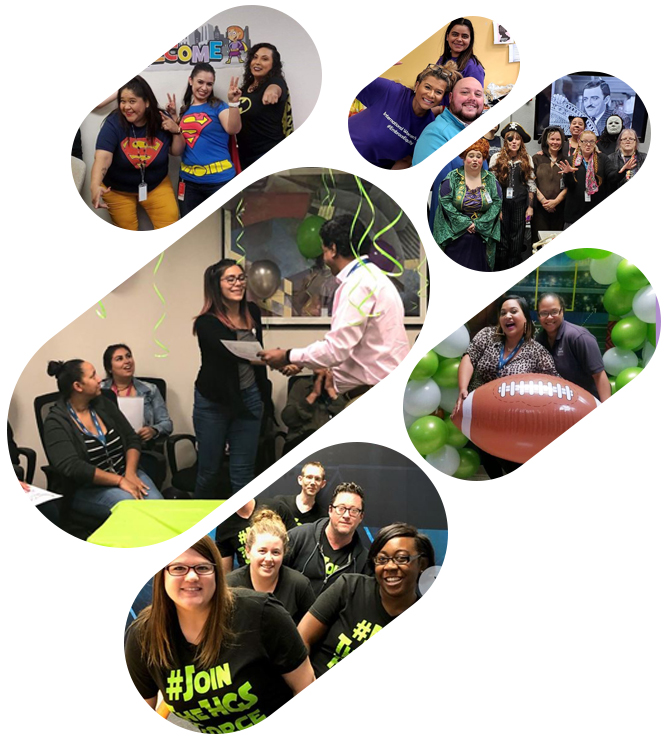
One of the key things required to function properly as an adult human being is communication. It is required everywhere—from the local grocer to work meetings. Your life is as smooth as your communication with to others is unambiguous. And for communication to be unambiguous, your thoughts need to be clear. When this delicate domino set is kept intact, people generally do not have too many problems around the workplace.
Effective communication is the backbone of a thriving workplace. Whether you're a professional, manager, or part of a team, knowing how to improve communication in the workplace can significantly enhance collaboration, productivity, and overall job satisfaction. In this article, we’ll explore what workplace communication means and provide actionable tips for effective communication in the workplace that will help you and your team communicate better and work more efficiently.
What Does Workplace Communication Mean?
Workplace communication refers to the exchange of information, ideas, and feedback between employees, managers, and teams within an organization. It can take various forms, including verbal, non-verbal, written, and digital communication.
Good workplace communication ensures clarity in tasks, strengthens relationships, and minimizes confusion. If you want to know how to become a better communicator at work, it’s essential to understand different communication channels and how to use them.
Workplace communication can be categorized into:
- Verbal communication – Meetings, phone calls, and one-on-one discussions.
- Non-verbal communication – Body language, eye contact, and tone of voice.
- Written communication – Emails, reports, and memos.
- Digital communication – Messaging apps, video conferences, and company intranet.
Now that we understand what workplace communication is, let’s look at practical ways how to improve communication skills in the workplace and build stronger professional relationships.
Tips for More Effective Communication in the Workplace
Effective workplace communication doesn’t happen by chance—it requires intentional effort and the right strategies. Here are some practical tips for effective communication in the workplace that you can implement to foster collaboration, clarity, and stronger professional relationships.
Have Regular 1-to-1s With Your Staff
If you’re a manager wondering how to improve your communication skills at work, setting up frequent 1-to-1s is a great start. Regular one-on-one meetings provide employees with a safe space to discuss challenges, share feedback, and align on goals. Managers who schedule these sessions show they care about their team’s well-being and productivity. These meetings also improve transparency and help address concerns before they become larger issues.

Become Aware of How you Communicate
Awareness of your own communication style is key to understanding how to become a better communicator at work. Whether it is a text, email, or a phone conversation, be conscious of how you speak and respond to your workmates, clients, or just anyone you engage with professionally. Are you sounding defensive about your end of the assignment? Is your message seeming accusatory towards a teammate who is lagging? While getting work ticked off your checklist is a great feeling, you might not want to burn bridges along the way. Rationalize others’ behavior and seek to understand where they are coming from. Once you gain this understanding, your communication automatically becomes more empathetic.

Listen, Listen, Listen
More often than not, human beings at all stages of life tend to listen to answers more than to understand. It is easy to keep our pace of work in isolation from others, and that is not good for teamwork. Listening to those around us and registering what is happening outside of us will break our bubble. When you listen, your input will match the next person’s need gap, making the interaction constructive. Truly listening demonstrates respect and builds trust, which is essential for learning how to improve communication at work. On the other hand, not listening can lead to several issues of miscommunication, leading the overall work quality to suffer.
Therefore, active listening is a critical skill, especially in customer service. If you're looking to advance in this field, these tips to secure a successful customer service job can help you develop the right communication strategies.
Connect with People in the Right Places
Our biggest problem today is the abundance of options for everything. Having various modes of communication has become both a good and bad thing. One is either completely accessible or completely inaccessible. Make the effort to find out where people are the most available. Others will also extend the same courtesy then.
If you’re wondering how to develop communication skills at work, being mindful of the right medium for each conversation is a great habit to build. For example, if a colleague prefers emails over phone calls, write to them. Maybe email helps them to manage their work better than calls. The last thing you want to be is a deterrent to somebody else's work.
Be Concise and Direct
If you’ve been asking yourself, ‘how can I work on my communication skills?’, practicing concise communication is a great first step. Many times when we are passing on information to others, be it a client, customer, or colleague, we might not filter fully, which leads to an overload. Work is smoother when people receive only the information that they need to work with. So, you need to gather your thoughts and relay only what is directly relevant to your client, customer, or colleague. Being direct is also the best way to avoid confusion. If facts are not clear in your head, you are allowed to take a few minutes to practice everything you need to say before you talk to somebody.
Face Issues Head-On
To err is human, and erroneous situations clear up the fastest when mistakes are addressed directly. As professionals, we need to have a constructive approach toward mistakes, whether they are done by us or by someone else. This manner of addressing issues simultaneously ensures that the job gets done while helping maintain relationships. Each of us are hard on ourselves as it is, without reminders from outside. Showing compassion also builds a stronger team.

Build Rapport Along the Way
There is a thin line between being too impersonal in our professionalism and becoming overtly casual with our co-workers. Where we draw the line ultimately falls on our better judgment. You can be friendly with people without making them feel uncomfortable. Slip in a comment about the weather to your customer or make mention of a new restaurant to your colleague over lunch. Research shows there is a lot of difference in the nature of work when people present themselves as approachable. We can be the ones to put out happy vibes in our environment, whether professional or personal.
Stick to Facts, not Stories
When communicating information, especially when giving feedback or addressing concerns, stick to the facts. Avoid making assumptions or relying on hearsay. Presenting factual information helps to maintain objectivity and prevents misunderstandings. This is a key element in understanding how to improve your communication skills at work.
Regularly Ask for Feedback and Act on It
Soliciting feedback from your team members is essential for continuous improvement. Ask for feedback on your communication style, your leadership, and your team's overall performance. More importantly, act on the feedback you receive. This demonstrates that you value their input and are committed to improving. This helps you learn how to be a better communicator at work.

Recognize Great Work
Appreciation goes a long way in improving workplace communication and morale. When employees feel valued, they are more engaged and open in their communication.
Simple ways to recognize great work:
- Give verbal or written praise
- Acknowledge achievements in team meetings
- Offer small rewards or incentives
Recognition creates a positive work culture and encourages more open communication. Improving communication at work is a key factor in professional success. Along with mastering communication, focusing on essential qualities for a career growth can help you advance in your career and become a more effective leader.
Be Mindful of Each Other's Strengths and Weaknesses
Every employee has different communication styles and strengths. Some may prefer direct conversations, while others may need more time to process information.
To work effectively as a team:
- Adapt your communication style to suit different personalities.
- Encourage collaboration based on strengths.
- Support those who need improvement in certain areas.
This approach not only improves your communication skills at work but also enhances team efficiency.
Share Important News and Company Updates
If you want to learn how to improve communication in the workplace, keep your team informed about important company news and updates. It maintains transparency and alignment. Ensure that everyone has access to the information they need to do their jobs effectively.
Conclusion
When you learn how to improve communication in the workplace, you are investing in the success of yourself, your team, and your organization. Effective workplace communication is not a one-size-fits-all approach. It requires continuous effort, self-awareness, and a genuine commitment to building strong relationships. By implementing these tips and consistently working on your communication skills, you can create a more collaborative, productive, and positive work environment. Remember, improving communication in the workplace is a continuous journey, not a destination.
Looking for career opportunities? Check out customer service USA jobs with HGS USA today!
Frequently Asked Questions (FAQs)
What are the 5 methods of communication in the workplace?
The five main workplace communication methods are:
- Verbal (face-to-face, phone calls, meetings)
- Written (emails, reports, memos)
- Non-verbal (body language, gestures)
- Visual (charts, presentations)
- Digital (instant messaging, video conferencing)
How to overcome a lack of communication?
To overcome poor workplace communication:
- Establish clear communication channels
- Encourage open feedback
- Hold regular meetings
- Use collaboration tools
- Foster a culture of transparency
What are the 7 basic forms of communication?
The seven basic communication forms are:
- Verbal
- Non-verbal
- Written
- Visual
- Listening
- Digital
- Interpersonal
What are the 4 basic communication skills?
The four fundamental communication skills are:
- Speaking clearly and confidently
- Active listening
- Writing effectively
- Reading and interpreting messages
🎧 Hear why HGS is a cool place to work and grow your career. Listen now.
 US
US Canada
Canada Colombia
Colombia India
India Jamaica
Jamaica Philippines
Philippines UK
UK SA
SA
